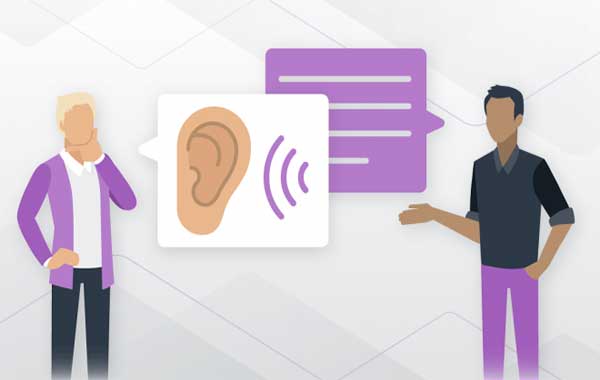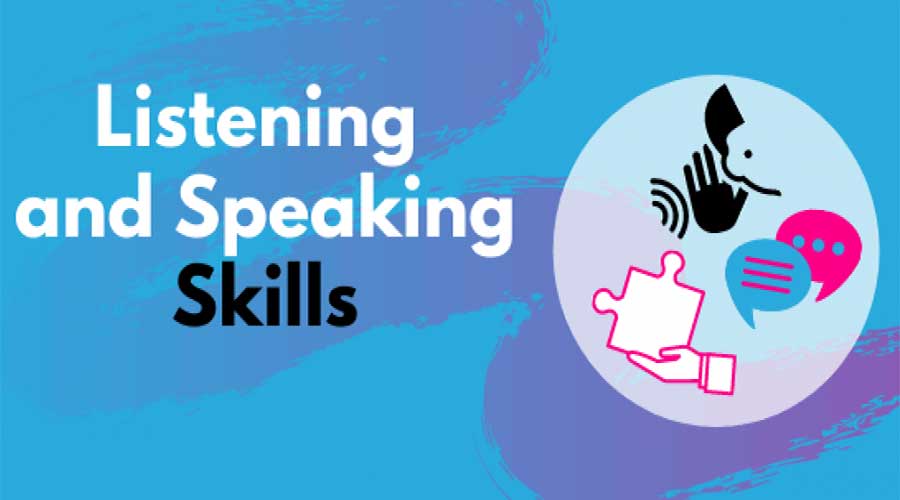
phone number
031-53246424
Shahreza
info@mala.ir
031-53246424
Weekdays 8:30-21

It is a communication system. We need a common language to understand social relations and processes at the international level. English is the most popular language in the world. While learning and teaching English as a second language, we always talk about the four language skills. Listening, Speaking, Reading and Writing skills which are called LSRW. In achieving these four language skills, students in all grades and English language teachers face many confrontations in classrooms. At the Iranian Language Institute of Europe, we are trying to help strengthen speaking and other language skills, including strengthening reading skills, strengthening writing skills, and listening skills, by using new educational methods and the cooperation of experienced and experienced professors.
Non-native English speakers generally have difficulty pronouncing English words because they do not have good listening skills. Listening is a complex skill full of details and subtleties that students must develop through practice.
IELTS Listening test and its importance:
In order to communicate, we need to know a common language, and the language learning process begins with listening. Listening is also a fundamental skill for strengthening other language skills including speaking. The art of listening is nothing but knowing and understanding what others say.
This art revolves around three factors:
Understanding the speaker’s pronunciation and accent
Grammar and vocabulary
and understanding the meaning of the speaker
A good listener is someone who can do the above tasks at the same time.
When a person is exposed to a second language for the first time, he only hears meaningless sounds. He shows no interest in discerning what he hears. But when a learner listens to a particular language regularly, he begins to recognize sounds or words that he has heard before.
How can I use my listening skills to improve my speaking skills?
You can actually gain a lot of information by listening carefully to what other people are talking about, different types of content and sources, and paying attention to what people do when they talk normally.
Listening carefully can help you learn what native speakers are saying, as well as when and how to say it yourself.
Many people tell you that you should listen to English more to improve your speaking, but they don’t tell you what to listen to.
In the following, we discuss what is necessary to improve speaking through listening:
Strengthening speaking through listening skills
The following will help improve speaking through listening:
Listen to the general concept
Listen to the details
Listen to the way of expression
Listen to the tone of voice
Listen for ways to get the other person to continue talking
Pay attention to the phrases and words chosen in what you listen to
Listen to the phrases and sentences
Listen to the conjunctions and phrases
Listen to the correct way to ask questions
A general concept means a general idea that you get from listening to a specific topic, part of a content or audio source. Remember that what you listen to can be very short or long. No matter!
Whether you’re listening to a five-minute video or a 15-minute documentary, you need to listen for the general idea. You should get a general understanding by listening to people talk or describe things. If you’re like most people, that’s what you’re doing with your listening skills right now: You’re probably listening to see if you can get the gist of what’s being said, and then decide whether you more or less understand what’s going on. Is it or not? The first time you listen to something, pay attention to its general meaning and listen more carefully the next time. Even native speakers do it!
Sometimes we’re just looking for the key message or point of what we’re listening to. But if you don’t need to pay attention to every single detail, just pay attention to the overall message. Many non-native speakers feel stressed when trying to improve their listening skills because they think they need to understand every single detail. If you’re not constantly interacting with native speakers, listening to the general concept can help you sharpen your ear for the main points. Don’t put too much pressure on yourself; Enjoy the listening experience with just a general understanding of what you’ve heard.
If you focus too much on the details the first time you listen to a piece of content, you might feel a little frustrated because you might miss a few words or miss the main point.
When you listen to a source or content again, focus on understanding more details. These details will be completely different depending on what you’re listening to (for example, an interview, live video, comedy, or podcast). When you listen for details, you need to be more specific about what you want to understand. For example, if you are listening to a lecture, interview, or TED Talk, listen to the arguments the person is making or how they are expressing their opinion. That way, you’re getting from the general concept to the specific details they’re using to prove their point.
So, the first time you listen to something, listen to get the gist. Second time, try

Listening to podcasts will help you improve your speaking. If you haven’t listened to the podcast before, you’re missing out! The reason podcasts are great for improving your listening skills is because many of the people who create podcasts today are not formally trained radio personalities, and many of them are just regular people having regular conversations.
Also, listen to interviews. Although people may prepare for the presentation before the interview, it is more natural than a rehearsed question-and-answer session on a documentary. Most interviews are spontaneous, so they give you the chance to hear how people interact using natural dialect. If you want to focus on a more formal, professional or academic dialect, interviews are also great because you can tell the difference. Know the difference between casual interviews and those that are a little more serious.
The same goes for listening to talk shows like Ellen, as well as late-night shows like Jimmy Fallon, Jimmy Kimmel, and Stephen Colbert. Although these hosts are professionals, the conversations flow in an intimate and casual manner.
Listen to comedians. Because comedians have to come up with their ideas and jokes so quickly, they tend to come up with ideas without preparation, especially in stand-up comedy.
How much time should I spend on listening daily?
To improve speaking through listening, you need to spend time doing it every day. You should make time for daily exercise and make it a priority in your life. You should listen to a subject in English for at least 15 minutes a day, it is better to increase this time to thirty minutes.
Remember, we are talking about focused listening: listening to these specific aspects of English in order to improve speaking and communication skills in English conversations.
You can wake up 15 minutes earlier or go to bed 15 minutes later, or spend time listening during your lunch break or on your commute. By committing to this short amount of time each day, you will make much more progress. Also, you can listen to an English audio source while cooking, cleaning or working on the computer.
By listening focused on what native speakers speak, you can easily improve your speaking through listening and enjoy your progress!